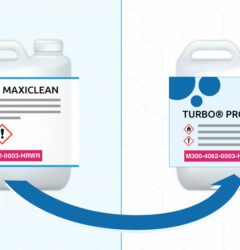16 Jun

Why Voluntary PCN Matters for Chemical Compliance
When it comes to chemical compliance, businesses often find themselves balancing product protection, legal requirements, and customer needs. The Poison Centre Notification (PCN) system and safety data sheets are essential elements in this process. For companies navigating the regulatory landscape, voluntary PCN offers a flexible tool—but understanding its real value is critical.
Key Considerations Before Submitting a Voluntary PCN for you Safety data sheets
What to Remember About Voluntary PCN and Safety Data Sheets
- Support, Not a Substitute:
A voluntary PCN is designed to support your customers, but it does not replace their legal obligations. Safety data sheets still remain a crucial compliance requirement. - UFI Codes and Cross-Border Compliance:
One UFI code does not guarantee automatic compliance across multiple countries. A valid PCN submission must be made for each country where your product is placed on the market. - Protecting Formulas for Non-EU Manufacturers:
For non-EU manufacturers, voluntary PCNs offer a practical way to safeguard sensitive product information while equipping importers with what they need for compliance. - Importer Responsibilities Remain:
Even if a voluntary PCN is submitted, importers are still responsible for ensuring their own PCN obligations are met. - Choosing the Right PCN Approach:
Deciding between an EEA-wide PCN and country-specific notifications depends on your company’s operations. EEA-wide notifications can save time, while individual country submissions offer more flexibility for specific markets.
At its core, chemical compliance is a shared responsibility. Voluntary PCN streamlines this process, but every stakeholder must play their part.
Simplifying Your Chemical Compliance Process
Five Practical Steps to Stay on Track with you Safety data sheets and PCN notifications
- Assess If Voluntary PCN Is the Right Fit
If protecting your formula or operating from outside the EU is a priority, voluntary PCN may be the most suitable option. - Work With a Chemical Compliance Partner
Lacking an EU presence means you need a reliable partner. Companies such as BENS Consulting can manage the process and ensure compliance from start to finish. - Coordinate With Importers
Clear communication is essential. Ensure that your importers understand their PCN and safety data sheet responsibilities. A voluntary PCN is only effective if everyone follows through. - Keep Documentation Updated
Changes in formulation, new market entries, or revised classifications demand immediate updates to PCNs and safety data sheets. Staying current is vital for ongoing compliance. - Plan for Compliance Early
Avoid last-minute submissions. Rushed compliance processes often result in mistakes, which can lead to costly regulatory issues.
The Role of Safety Data Sheets in Chemical Compliance
Safety data sheets play a critical role in both PCN submissions and overall chemical compliance. They provide essential information for safe handling, storage, and emergency measures, and serve as a key reference for regulatory authorities and downstream users.
Don’t forget: Building a Sustainable Chemical Compliance Strategy is important for your Safety data sheets and hazardous communication
Chemical compliance, especially with evolving PCN requirements, does not need to be overwhelming. By taking the time to understand voluntary PCN, maintaining up-to-date safety data sheets, and developing a reliable process, companies can turn regulatory demands into a manageable routine.
Voluntary PCN is just one component of a comprehensive chemical compliance strategy. If you are uncertain about your next steps, expert guidance can make all the difference. A thoughtful approach protects your products, supports your customers, and strengthens your market position.
If you don’t have your chemical compliance internal team and if you need help with PCN submissions, chemical compliance, or safety data sheets, you contact our consultants at BENS Consulting to discuss a compliance strategy that works for your business. And we will take care of everything for you! If you want to start using Chemius you can click here, or you can write us an email support@chemius.net or you can book a meeting with our chemical consultant Tim Bencik.


